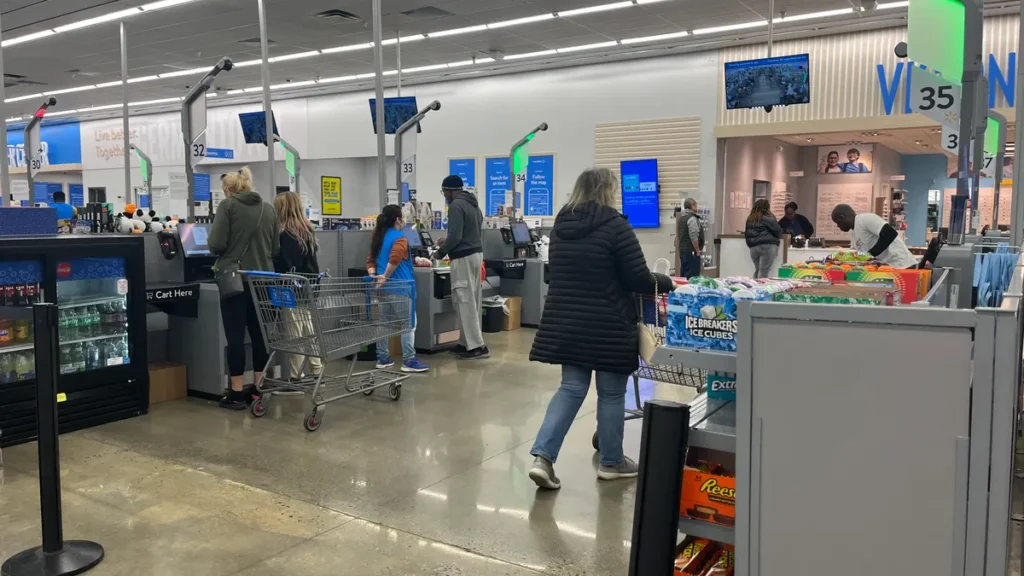Accused of Theft at Self-Checkout
Retail stores in Florida are increasingly using self-checkout systems, but the rise of this technology has brought a significant increase in incidents of being accused of theft at self-checkout, false imprisonment, and malicious prosecution. When a store improperly detains a customer following a self-checkout transaction, that conduct may constitute false imprisonment and malicious prosecution under Florida law. Some retailers have had so many problems with self-checkout registers that they have removed them from some of their stores.
Our firm represents individuals throughout Florida who have been unlawfully stopped, detained, accused, or humiliated by major retailers over self-checkout transactions. These cases are not only about retail policies, they are about protecting the dignity and civil rights of every consumer.
Understanding False Imprisonment in a Retail Setting
In Florida, a merchant may detain a customer only if they have probable cause to believe that theft has occurred. Even then, the detention must be reasonable in both manner and duration. Detaining someone solely based on a system error, an unintentional scanning mistake, or a vague suspicion without direct evidence may rise to the level of false imprisonment. At self-checkout, store employees or security personnel often act aggressively or prematurely, detaining customers without first investigating the situation. This can lead to significant emotional distress, reputational damage, and, in some cases, unlawful arrest and malicious prosecution.
Common Circumstances in Self-Checkout False Imprisonment Claims
Cases involving false imprisonment at self-checkout registers often include:
-
Detaining a shopper over a missed scan or item mistakenly left in the cart
-
Blocking exits or refusing to allow the customer to leave
-
Forcing the individual into a back room for questioning
-
Involving law enforcement despite the absence of clear evidence
-
Accusations made loudly or publicly in front of others
-
Profiling or targeting based on race, age, or perceived income level
These scenarios are all too common, and they often result in both emotional harm to the customer and legal liability for the store.
Legal Claims That May Apply
Depending on the facts, a victim of unlawful detention in a self-checkout context may have claims for:
-
False Imprisonment
-
Intentional Infliction of Emotional Distress
-
Defamation (particularly if accusations were made publicly)
-
Malicious Prosecution (if the store caused a wrongful arrest)
-
Civil Rights Violations
Why Being Accused of Theft at Self-Checkout Matters
The damage from an unlawful accusation or detention can extend far beyond the moment. Clients often report anxiety, fear of returning to public spaces, embarrassment, and long-lasting harm to their professional reputation. In many cases, the individual has done nothing wrong and was simply using the store’s own self-checkout equipment in good faith.
These incidents are often driven by inadequate training, flawed loss prevention protocols, or assumptions based on bias, not by actual wrongdoing. Our legal system provides a remedy for these injustices.
Serving Clients Throughout Florida
We represent clients in Miami and through Florida. We have pursued claims against large national retailers, regional chains, and local stores that have overstepped their legal boundaries.
Our firm offers:
-
Thorough investigation and case analysis
-
Strategic, aggressive legal representation
-
No upfront fees, we are only paid if we recover compensation for you
Schedule a Free Consultation
If you were detained or accused of theft after using a self-checkout, you may have a valid claim. At The Berman Law Firm, P.A., we represent people throughout Florida who have been falsely detained, racially profiled, or unlawfully searched or assaulted in retail stores and other public places and businesses. We provide free and confidential case evaluations. Let us review the facts and advise you of your legal options. Call us now.

